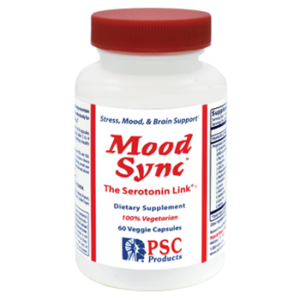EVOX
What is Voice Mapping Technology?
Are you…
- Feeling emotionally blocked?
- Out of control emotionally?
- Caught in the same old arguments over and over again?
- Sabotaged by your anger?
- Feeling trapped by old wounds?
- Frustrated with other therapies?
- Ready to be free from the past?
- Afraid of public speaking?
As a performer or athlete, are you…
- Choking up when you need to deliver your best performance?
- Losing focus at critical times?
- Lacking the energy to follow through or finish?
- Sabotaging yourself in ways that affect your performance?
(*Also referred to as “Perception Reframing” using the EVOX from Zyto)

What follows is a general description of voice mapping that hopefully will answer your current questions and possibly a few more.
I would like to begin by saying I am not the inventor, I am a practitioner. I don’t have a scientific background; I have a general idea and a metaphoric way to describe the voice mapping process.
For example, I believe that each day of our lives is recorded in some way akin to a tree growing a new ring each season.
In each ring is recorded stressful or traumatic events you experienced and, very important, the coping skills you called up or invented to respond to the stress. At the time, that particular coping skill was the best tool you had available. For example, if a child grew up in an environment of extreme criticism, she or he may have coped by disconnecting from their emotions or becoming self critical as well. While that subconscious mechanism helped them get through their childhood, most likely it caused problems later in life when they had problems with self confidence or trying to form intimate relationships.
That ring of history, and many hundreds more, is still active somewhere within you.
Hyper-vigilant, whenever you encounter an element connected in some way to that early experience, at some level, alarm bells go off and your subconscious initiates behavior for you to avoid or escape the moment. There is a saying, “Fish don’t know they are wet.” When you’ve lived with a behavior or stress response most of your life, it may not seem out of the ordinary to you. If you notice anything at all, you may say, “that’s just the way I am.” However, when you’ve cleared early forming memories connected to parental or other experiences, you stop that behavior and often realize numerous ways in which you feel better being in the world.
Voice mapping is proving to be an effective process for helping people process and release stress and trauma.
(Note: while I use the word, “release”, quite a bit, I believe what is actually happening prior to a feeling of release is that a memory/muscle connection is experienced as a place where the body’s energy is unbalanced. What is experienced as a shift or a release is actually a balancing of a piece of the body’s energy matrix.)
Calvin Young is the scientist who initially developed voice mapping. He studied sound and healing globally and historically.
His research included the work of Shari Edwards who has an exceptional sense of hearing. She can hear when and which frequencies are missing in a person’s voice. In her work as a healer, Shari uses tuning forks and other instruments to play those frequencies back to her clients – the toning evidently helps in the healing process. This pointed Calvin in the direction of study of the human voice that eventually led to voice mapping. A collaboration with Vaughn Cook of Zyto, Inc., resulted in an integration of voice mapping with the style of biofeedback stress assessment used by doctors, acupuncturists and naturopaths to assist in physical healing of the body – an exquisite partnership of blending mind/body resources. Vaughn recently released the EVOX, the newest technology in the realm of voice mapping. You can learn more at http://www.zyto.com
In deep tissue massage, such as Rolfing, there are times when the practitioner is working on a particular muscle location when the client suddenly experiences a powerful emotion that seems to come from out of nowhere. Some scientists believe that the memory resides in some facet of muscle tissue such as the fascia.
Many muscles of the body are involved in creating the voice.
Many of the muscles from the pelvis up through the skull contribute to the workings of our larynx and voice.
If you are thinking about something that is connected in some way to one of those events recorded in a memory/muscle connection, that connection is stimulated, the muscle is affected and, in turn, that muscle effect shows up in the frequencies expressed in your voice. Calvin and his researchers have determined which frequency combinations are connected to which emotional states. This is visually represented in the pie chart voice map that you can see on my web site.
Those frequencies are then fed back to you in a form of biofeedback, stimulating the memory/muscle connection allowing it to be surfaced, processed and released (balanced). In the process, you are permanently remapping your brain, breaking the connection between subconscious memories and your present day behavior. The result is a reduction in stress and an ability to respond to life more in the moment rather than being stuck in old behavior patterns.

Subconsciously we create complex and sometimes mysterious mechanisms to protect us from early traumatic and stressful experiences. These mechanisms run silently below the surface of our conscious mind as coping skills that help us endure and survive difficult events and chronically painful conditions throughout our lives. However, their repetitive application often leads to thoughts, feelings and actions that create suffering and rob us of our fullest potential in later life.
Working with the frequencies in a client’s voice, voice mapping is a highly effective biofeedback process for emotional release and healing from the consequences of stored stress and trauma. It is also used by athletes to overcome challenges and improve peak performance. Given the correlation between physical and emotional health, voice mapping can be helpful in fighting chronic health problems.
History and Technology
Inventor Calvin Young became interested in voice mapping and sound healing while looking to make a change from his career as an aerospace engineer. Building on the work of early sound healers, including Pythagoras, to the BioAcoustic research of Sharry Edwards and the voice frequency analysis techniques of Alfred Tomatis, Young developed the technology known as VSA (Voice Stress Assessment). This was originally released in 2004 under the name “VoCal 360”. At that time Young formed a brief partnership with Vaughn Cook of Zyto, Inc. Vaughn’s research eventually incorporated a version of voice mapping that integrates Zyto’s biofeedback stress assessment technology that is used by physicians, acupuncturists and naturopaths to help patients with their physical health. Today, Zyto’s voice map system is marketed under the name EVOX.
In a VSA session, you will record short “voice maps” on family, relatives and significant people in your life, about circumstances (such as car accidents and traumatic childhood events), and about health and other chronic conditions that are limiting your capacity to live a full, emotionally healthy life. Words are not recorded, only a combination of the present and missing frequencies in your voice. The missing frequencies are a consequence of the buried memories connected to the subject of your recording.
The frequencies derived from your recording are then broadcast back to you. These frequencies stimulate and balance the relevant memory/muscle connection. During the balancing, you may experience a powerful emotional release or realize a significant insights into stress your experienced. If that connection is storing a memory connected to stress and trauma, that memory is causing an imbalance or distortion in the body’s energy field. That imbalance is contributing to the challenges you may be facing. In the biofeedback process, you may recall forgotten memories, strong emotional feelings, and/or critical insights that can help you break free of rigid thinking, unresolved grief and anger and other buried emotions that keep you stuck in repetitive behavior patterns. For more information, read the detailed description below.







